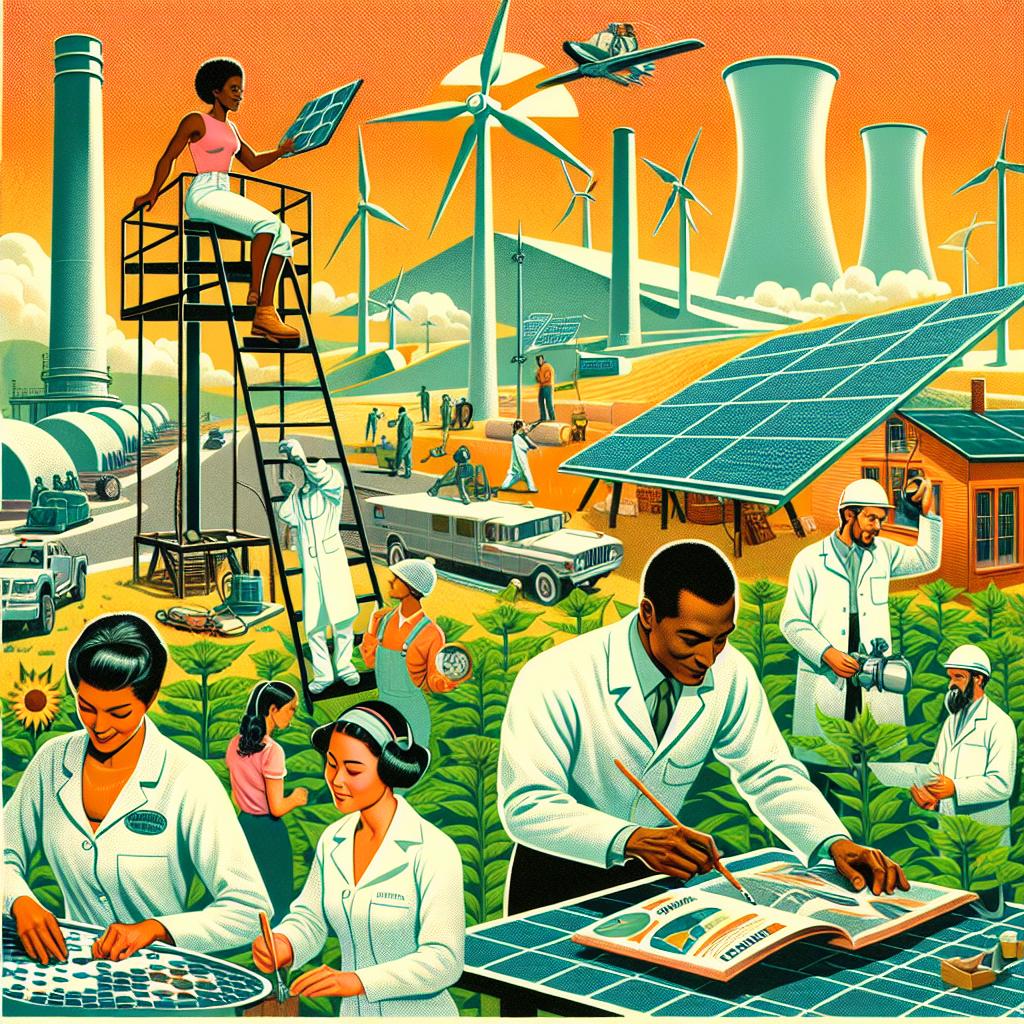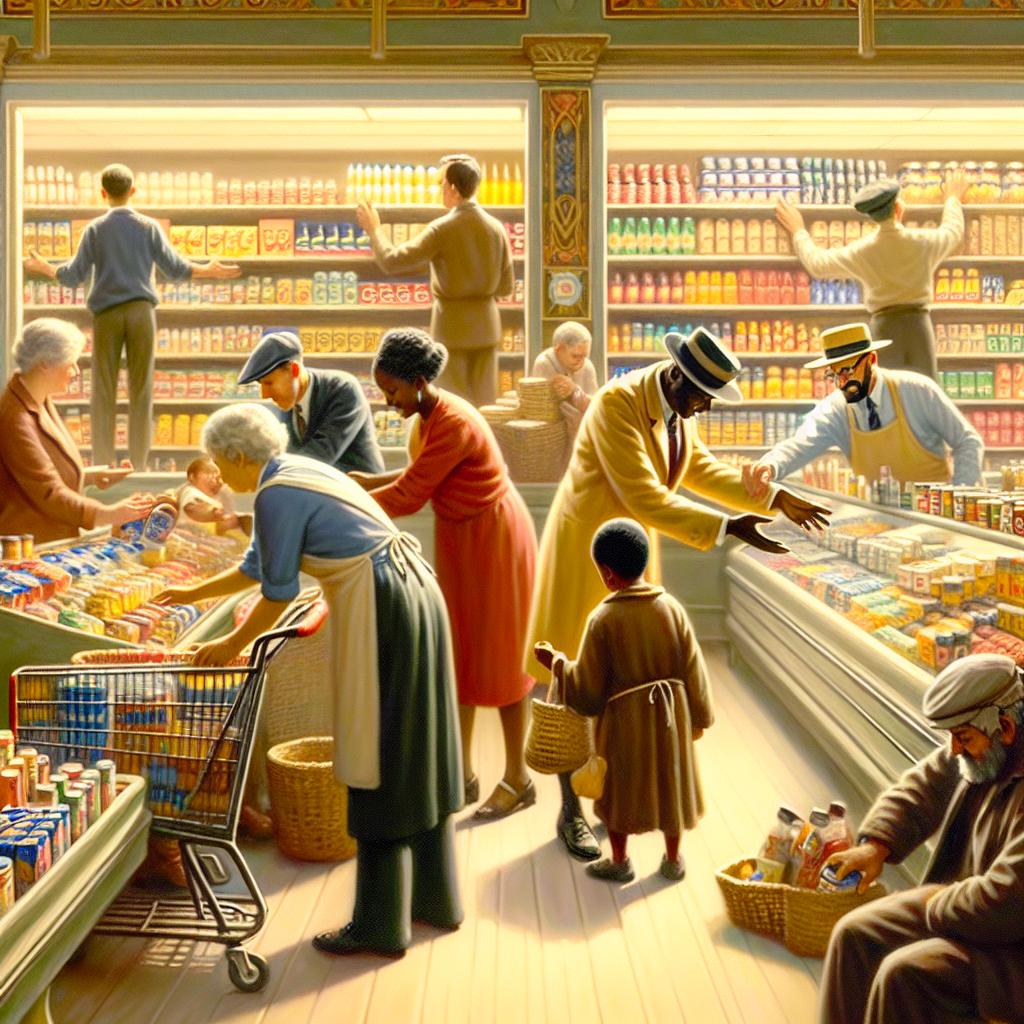Understanding the Green New Deal
The Green New Deal, a bold and ambitious policy proposal, aims to transform the American economy while addressing one of the most pressing issues of our time: climate change. This comprehensive plan advocates for massive investments in renewable energy, with the promise of creating millions of sustainable, green jobs. It has sparked robust discussions across the political spectrum, as proponents argue that we can combat climate change while simultaneously addressing issues of economic inequality.
The plan’s framework is modeled after the New Deal of the 1930s, which provided a pathway out of the Great Depression through a series of government programs aimed at revitalizing the economy. Just as the original New Deal sought to tackle unemployment and economic disparity after a catastrophic financial collapse, the Green New Deal aims to modernize our energy infrastructure while aiming for full employment in a sustainable future.
The Green New Deal proposes not merely a shift in energy production—a transition from fossil fuels to renewables like wind and solar—but also endeavors to address economic inequality and create a more equitable society. As climate events increasingly impact marginalized communities, this plan posits that climate change and economic opportunity are intertwined.
The Economic Upside: Potential Job Creation
Backers of the Green New Deal emphasize the staggering potential for job creation. Renewables, as industries grow and stabilize, could outnumber traditional fossil fuel jobs—for every coal plant closed, there would be the potential for multiple solar panel installations, wind farms, and energy efficiency projects. This aspect of the proposal uniquely resonates in a country still recovering from the economic fallout of recent crises.
Proponents envision millions of jobs, ranging from construction and maintenance of renewable energy facilities to technology development and support systems for sustainable practices across the board. A Green New Deal is not only about revamping our energy sources; it’s also about reshaping industries. A recent report points out that investments in renewable energy industries could increase employment and provide long-term security for workers, influencing everything from housing and education to healthcare and social services—a fundamental shift towards the better.
This prospect aligns neatly with other social good initiatives, turning it from an abstract ideal into a relatively concrete economic recovery strategy.

The Counterarguments: Cost and Impact on Existing Industries
However, the Green New Deal has its fair share of critics, and their concerns cannot simply be brushed aside. Detractors argue that the plan lacks a viable financial blueprint to support such expansive proposals, labeling the initiative “too expensive.” The question arises: where will the money for these extensive programs come from?
Moreover, opponents also express apprehension over the potential disruption to existing industries, particularly fossil fuels. Throughout much of America, communities thrive on coal and oil jobs. Transitioning to a renewable-focused economy risks displacing these workers and communities that rely on these industries for their livelihood.
As the nation undergoes a energy revolution, it must also grapple with the human element of job shifts—and ensuring that no one is left behind in this transformative period. This balancing act, between aggressive renewables advancement and protecting those currently employed in fossil fuel, is a delicate one. One possible pathway lies in targeted retraining programs that equip displaced workers with the skills needed for new job opportunities in alternative sectors.
Conclusion: A Path Forward
The Green New Deal presents a complex tapestry of possibilities. It is both a vision for a greener economic future and a debate on the realities of implementation. While its advocates hail it as not just an environmental proposal, but a comprehensive strategy that addresses social and economic inequalities, concerns raised by opponents necessitate careful consideration.
As discussions about the Green New Deal continue, its potential for job creation and the desire to combat climate change hold firm in the minds of Americans and their leaders. Balancing innovation with the uncertainties posed will guide this pivotal moment for our economy and environment. The conversation around the deal is ongoing, and moving beyond mere rhetoric could shape a brighter future for many.



